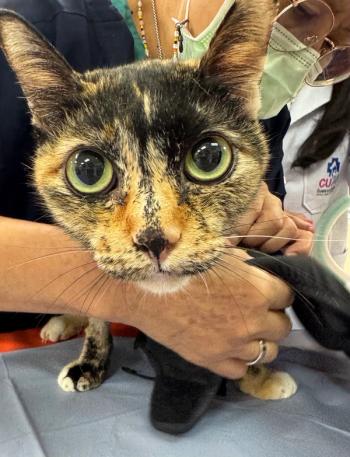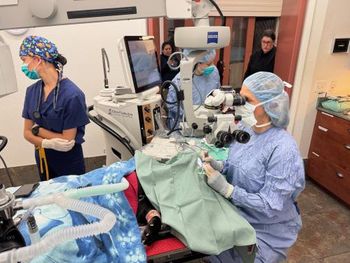
Veterinarian, clients clash over rabies vaccine
A general practitioner ends up in the hot seat when her municipality requires rabies vaccine boosters before the 3-year expiration date. Should she fight city hall to support her clients? Dr. Rosenberg weighs in.
Sheila Howard, DVM, is encountering more and more of what she likes to call “vaccine challenges.” She certainly doesn’t want to drive away good clients who push back on her recommendations, but she feels strongly about doing the right thing. This has caused her some problems.
In Dr. Howard‘s home state, the law requires that dogs be licensed and vaccinated against rabies by a veterinarian. In addition, the dog’s duration of immunity must last at least 10 months into the 12-month licensing period—so a dog with a three-year rabies vaccination must be revaccinated no later than two years and two months from the date of the last three-year vaccination or a new dog license won’t be issued.
Many pet owners are incensed by this regulation and have told Dr. Howard they shouldn’t be made to revaccinate any more frequently than every three years. Many of these clients are concerned with over-vaccinating or feel their dogs aren’t at risk for rabies. Dr. Howard was nearing her wit’s end. They’ve asked her to write letters on their behalf to municipalities, and some have asked her to exempt their pet from a rabies vaccination.
Dr. Howard did spend some time reaching out to local municipalities, requesting a modification of the strict policy. She recommended they accept a rabies titer in place of an early vaccine for those pet owners concerned with over-vaccination. She once again was told the law is the law.
After her latest foray at trying to change local policy, Dr. Howard decided to address the issue in a practice newsletter. She explained that the state law required what was clearly early vaccination renewal. She went on to say that early vaccination would not put the health of their pets at risk. Finally, she tactfully commented on her refusal to write vaccine exemption letters unless the pet truly had a medical condition that could be negatively impacted by vaccination. Dr. Howard’s newsletter went out to her clients, and it wasn’t long before responses poured in.
Most clients appreciated the information. Several said they were disappointed that she was putting a poorly thought-out state regulation above the needs of her patients. And a few clients argued that it was OK for Dr. Howard to write an exemption letter to allow her patients to be licensed when her records indicated that the pets are regularly vaccinated every three years against rabies.
Dr. Howard lost a few unhappy clients asking for exemption letters. Should she have been more aggressive in stating her objections when the town did not honor the FDA-approved three-year immunity of the rabies vaccine? Was it better for her to simply take the approach that “you can’t fight city hall”? What would you have done? Email us and let us know at
DR. ROSENBERG’S RESPONSE:
First, we all know rabies is a devastating zoonotic disease. Governments want to be sure that licensed dogs have proven immunity until the end of a license period. If a pet owner obtains a new license in January and a dog’s rabies shot expires in March, the dog is theoretically unprotected for the nine-month remainder of licensure unless revaccinated.
I know there are arguments on both sides. Vaccine effectiveness often lasts beyond three years. Responsible pet owners do not let vaccines lapse. However, it’s always better when dealing with rabies prophylaxis to err on the side of caution. Dr. Howard did the best she could to inform her clientele about the early vaccination rationale. She acted ethically and responsibly. Unfortunately, it’s inevitable that a certain percentage of pet owners will choose expediency over safety. It’s our job as veterinarians to see that there are no shortcuts taken when life-threatening disease hangs in the balance. Hang in there, Dr. Howard!
Dr. Marc Rosenberg is director of the Voorhees Veterinary Center in Voorhees, New Jersey. Although many of the scenarios Dr. Rosenberg describes in his column are based on real-life events, the veterinary practices, doctors and employees described are fictional.
Newsletter
From exam room tips to practice management insights, get trusted veterinary news delivered straight to your inbox—subscribe to dvm360.






